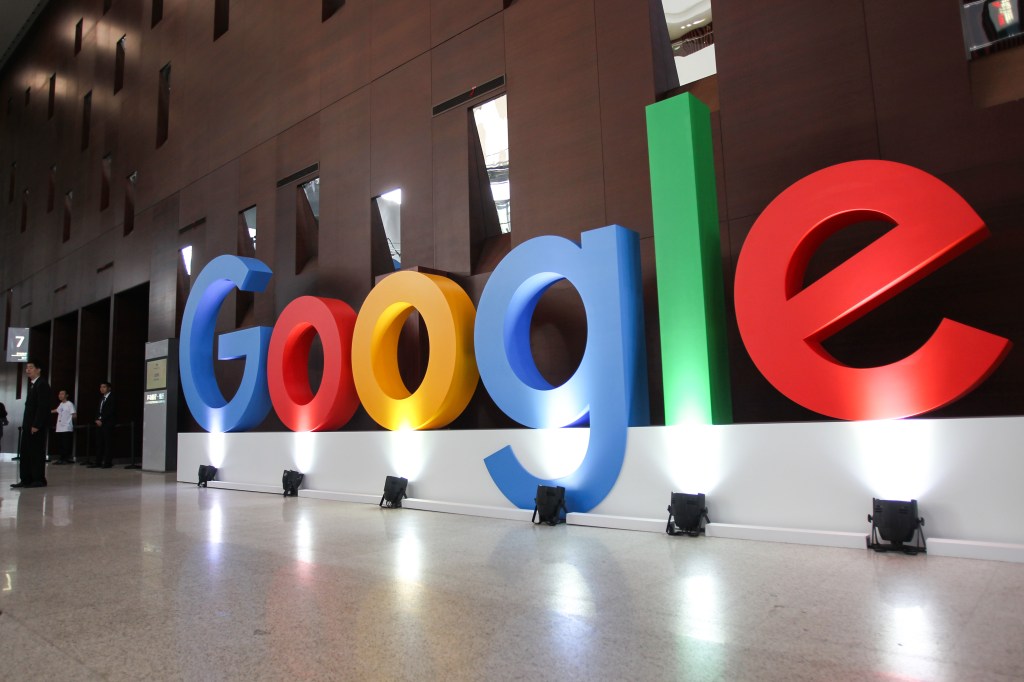Google’s public cloud has been chasing competing services from Amazon and Microsoft for so long, you might think it would be getting winded. But the critical Alphabet division keeps on keeping on, yesterday reporting revenues of more than $5.5 billion for the fourth quarter. That was the good news. The bad news was that Google Cloud accrued operating losses worth $890 million at the same time.
It may be hard to understand how a business with a run rate greater than $22 billion is losing money, but chief financial officer Ruth Porate explained it in the earnings call with analysts. It basically comes down to spending money to make money, while also competing with its much more successful rivals. (She refers to Google Cloud as simply Cloud here.)
“While Cloud operating loss and operating margin improved in 2021, we plan to continue to invest aggressively in Cloud given the sizable market opportunity we see. We do remain focused on the longer-term path to profitability and over time, operating loss and operating margin should benefit from increased scale,” she said per a call transcript.
Those investments are expensive and produce lumpy profit results. For example, while Google Cloud’s operating loss narrowed from Q4 2020 when it was over $1 billion, the final quarter of 2021 saw the group lose more money on an operating basis than it did in the sequentially preceding quarter, when the figure had declined to a more modest $644 million. Still a lot of money, but a smaller loss all the same.
It’s also worth remembering that while the progress that Google Cloud has made in revenue terms is impressive, the division still remains smaller than other Alphabet incomes. YouTube ads is a far larger business, for example, with $8.6 billion in Q4 revenues. Sadly, as Alphabet doesn’t break out YouTube profitability, it’s hard to directly compare the two.
Are ongoing losses an issue?
John Dinsdale, chief analyst at Synergy Research, a firm that keeps close tabs on the cloud industry market, says the loss isn’t worrisome at this stage.
“Google Cloud reporting a loss is not a big deal at all. Businesses of this nature require a lot of upfront investment and buildout of infrastructure and often don’t break even for several years,” he told TechCrunch.. “AWS made a loss for many years and was quite clear that it was making a conscious choice to plow cash being generated back into investing in the business. Alibaba Cloud has only recently started to generate operating profits for the first time.”
Porat’s comments in the earnings call confirmed this assertion when addressing capital expenses (capex). “The results in the fourth quarter primarily reflect ongoing investment in our technical infrastructure, most notably in servers, to support ongoing growth in both Google Services and Google Cloud,” she said. In other words, they are adding capacity to keep up with growing demand.
At this juncture we can get a handle on how much Alphabet is spending in capital expense terms by digging more deeply into its results. Per the company’s latest earnings document, “purchases of property and equipment” accounted for $6.4 billion in capex last quarter. That figure was up only modestly from $5.5 billion in the year-ago period. As a comparison, Microsoft’s similar “additions to property and equipment” capex line item was $5.9 billion for the Q4 period.
So, Alphabet’s aggregate capex is greater than Microsoft’s, despite the latter’s position of greater share in the public cloud space. It’s effectively impossible to parse the numbers further given that Google’s “cloud” bucket is multi-part, capex is not broken out by either company on a per-product basis, and Azure results are reported in percentage-growth terms only. Alas.
To underscore that point, it’s important to understand how Alphabet defines cloud revenue, which includes multiple categories like, Google’s infrastructure and platform services, Google Workspace collaboration tools and other undefined enterprise services. Dinsdale says the bulk of the revenue came from infrastructure and platform services, however.
Dinsdale says that losses aside, there’s a lot to like about the direction of Google Cloud. “Google continues to strengthen its position and is typically achieving revenue growth that is some ten percentage points higher than overall market growth rates, so it is steadily increasing its market share.”
He adds that while Google Cloud got off to a slow start and is making good progress (as its $22 billion run rate attests), the company still has a long way to go to reach the size of its rivals. “That does have to be put into context though. In this market, Google remains only half the size of Microsoft and substantially less than a third the size of Amazon,” he said.
But it’s also worth pointing out that just four years ago, the company reported its first $1 billion in combined cloud revenue, showing how far it as come as it works to bulk up the cloud division under the leadership of Thomas Kurian.
Given that it has so much market share to make up if it wants to catch merely the number-two player, it’s not hard to anticipate that Alphabet will continue to keep the cash spigot flowing for its cloud efforts. Because it is spending this much and mostly matching Azure growth rates, it cannot afford to spend any less. (Both Google Cloud and the Azure cloud bucket are growing around the 45% mark, for reference.) In fact, you could argue that it should be spending more.
The good news for Google Cloud: the market continues to expand, giving it room to grow and reach new heights regardless of those market share challenges.































Comment